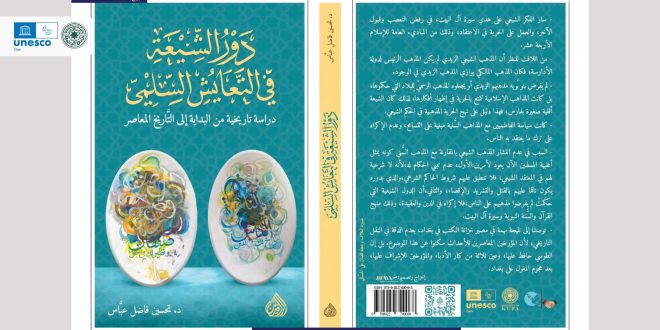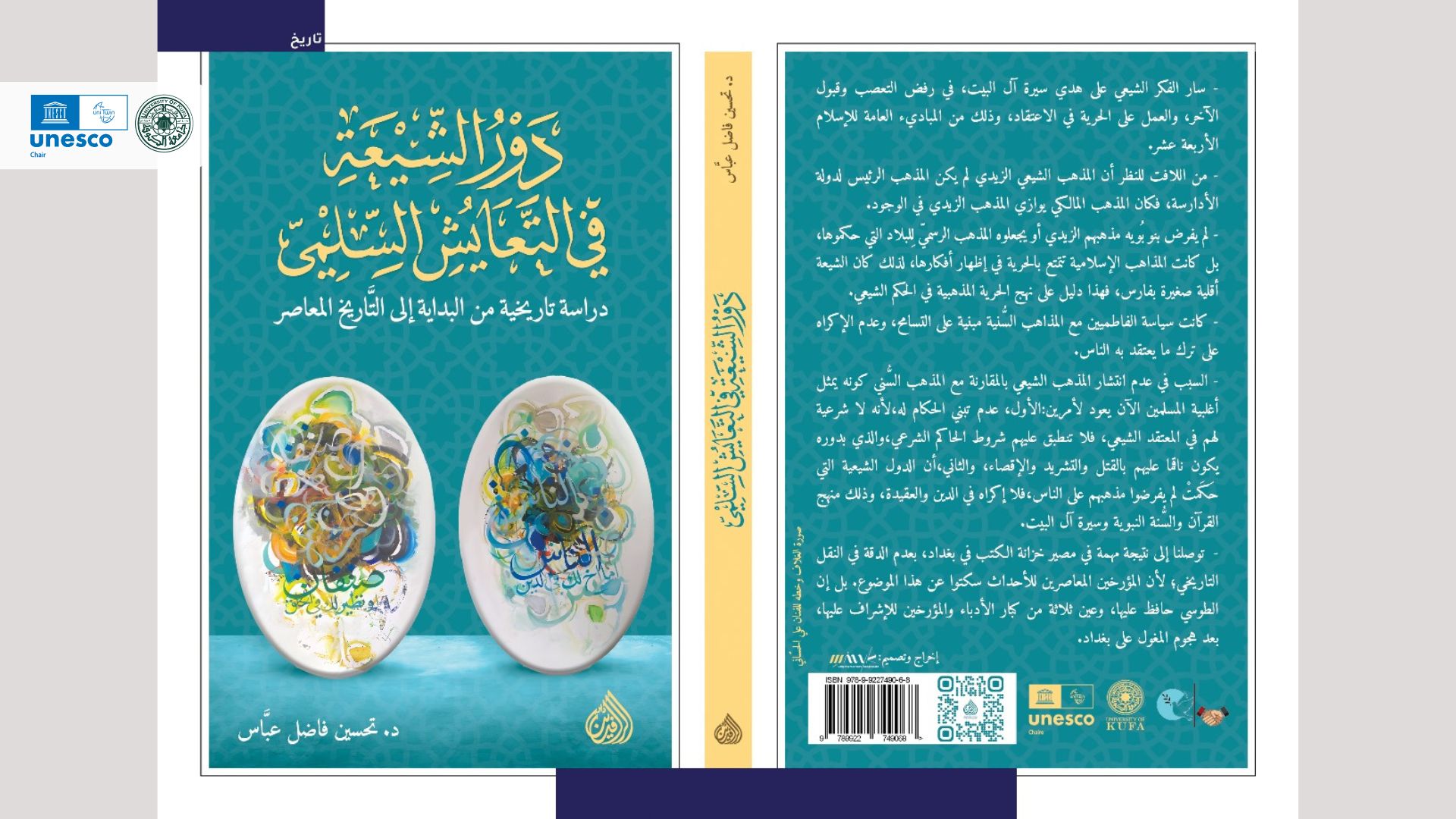The UNESCO Chair for Interreligious Dialogue at the University of Kufa, in collaboration with Al-Rafidain Publications in Beirut, has released a new book entitled “The Role of the Shia in Peaceful Coexistence: A Historical Study from Inception to the Contemporary Era”, authored by Professor Dr. Tahseen Fadel Abbas, a distinguished member of the Chair.
In this scholarly work, the author elucidates that Shi’a thought, in its engagement with the ‘Other’, follows the noble example of the Prophet Muhammad (PBUH) and his purified progeny (Ahl al-Bayt, peace be upon them). It advocates for freedom of belief, grounded in the fourteen universal principles of Islam. Dr. Abbas asserts that Shi’a-ruled states throughout history did not impose their sectarian doctrine upon the general populace. He cites the Buwayhids and the Fatimids as illustrative cases—particularly noting the Fatimid dynasty’s policy of tolerance toward Sunni schools of thought and its deliberate avoidance of coercion in matters of faith.
To bolster his argument, the author invokes a wide array of historical episodes, both ancient and modern, alongside scriptural evidence from the Qur’an and prophetic traditions. Among the poignant examples cited is the Prophet Muhammad’s (PBUH) acceptance of Christian worshippers praying within his mosque, and the Constitution of Medina, which enshrined two foundational principles: freedom of religion, and a broad, inclusive concept of nationhood defined by mutual compassion and humanity. This foundational document ensured equality in rights and duties among all citizens of the state, irrespective of their ethnicities, colors, tongues, or creeds.
Turning to modern history, Dr. Abbas references key positions of the religious authority (Marja‘iyya) in Najaf and its dealings with various ethnicities, sects, and faith communities. He highlights the 1965 edict by the late Grand Ayatollah Sayyid Mohsin al-Hakim, prohibiting the fighting of Kurds in northern Iraq. Similarly, he sheds light on numerous fatwas and public stances by Grand Ayatollah Sayyid Ali al-Sistani (may his shadow endure), which consistently emphasize tolerance and the honoring of the Other.
The book was published in May 2025 in Beirut and comprises 200 pages in medium format.
 UNESCO CHAIR For Inter-Religious Dialogue Studies in The Islamic World
UNESCO CHAIR For Inter-Religious Dialogue Studies in The Islamic World


